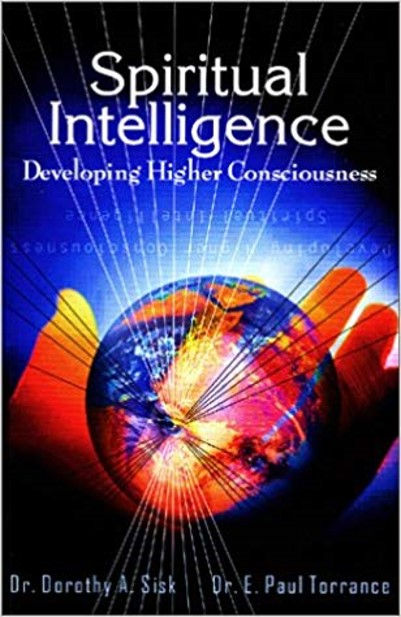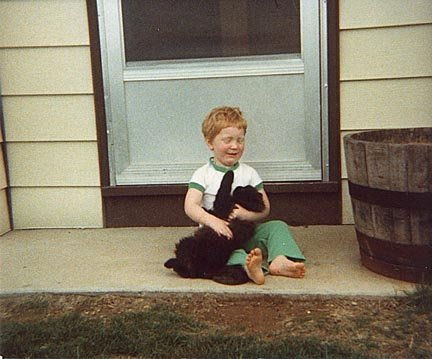The "Problem" of Religion and the Questioning Mind
- erinmorrismiller
- May 11, 2025
- 5 min read
Updated: May 13, 2025
Erin Morris Miller, PhD
(This blog was originally published on the discontinued site thegiftedscholar.com and is based on a presentation given November 2019 at the Annual conference, National Association for Gifted Children, Albuquerque, NM.)
It is Sunday, a few minutes to 10AM, and my daughter and I have settled into my bed. We are snuggled up together with my laptop resting on my midriff. I find the right Facebook site and begin the stream. At the sound of the organ music, Alex the Cat walks in and leaps into the bed to join us. It is time for church services – pandemic style.
Religiosity
Religiosity and spirituality are essential issues in lifespan human development and there is a robust area of psychology exploring this aspect of life. But in the many years I have worked in the field of gifted education research, there has been very little overlap between these two research areas, particularly in the area of religiosity. There is more interest in spirituality, which is perhaps understandable given that it is less politically charged. Religiosity and spirituality are two very different constructs. Religion is a system of perspectives, attitudes, beliefs, and practices that is part of an institutional system. It often involves the service and worship of a G-d or the supernatural.
Spirituality
Spirituality is an experience of being connected to a larger force that exists beyond your current experiences and which involves living in a way that honors that force or considers it sacred. Religion is more group-based, while spirituality is based on personal perspectives. One can practice the rituals and behaviors of a religion without being spiritual and one can be spiritual but not religious.
I grew up and still am a member of the Church of the Brethren, a smaller Protestant sect which is part of the historic peace churches along with the Amish, Quakers, and Mennonites. I have been a part of the same congregation my whole life. I participate in the shared rituals with ~200+ people each week. I have known some of these people since nursery. Some people I just met this year. With some I share other values. There are some for which being part of Mill Creek CoB is the only thing we share. I do not like all these people, but it is not about friendship. However, if something aversive happened to me, these people would have my back and I would have theirs. Plus, it is just pleasant: singing, meditation/prayer, and lectures on selflessness, self-improvement, and being a servant to others. Psychologists have attributed the general positive correlations between health/longevity and religiosity to these positive psycho-social support factors*.
Spirituality is quite different. I doubt that everyone who practices a certain religion would be in perfect concordance in their spirituality. Spirituality is the exploration of questions about reality, mortality, and the meaning of life. These are questions that are unanswerable. Believe me. I have explored all aspects and perspectives. Every approach to answering the questions regarding the meaning of life breaks down in the face of critical inquiry at some point. And that applies to science to an equal degree as spirituality. The unknowable aspect might be the hardest part for gifted kids. There are questions to which there are no intellectually satisfactory answers. Living in uncertainty is challenging.
Gifted Education Scholars

Early scholars in gifted education such as Leta Stetter Hollingworth noted that gifted children, especially highly gifted children, ask spiritual questions unusually early in life. This line of inquiry and interest can be seen in the writings of scholars and authors such as Annemarie Roeper, James Webb, Martha Morelock, Diedre Lovecky, and Stephanie Tolan. Others have also noted a propensity for high achieving students to ask more questions about religion, morality, and spiritual issues (Simpson, 2012; Tirri, et. al., 2005). In their book, Spiritual Intelligence, Dorothy Sisk and E. Paul Torrance wrote of facilitating connectedness, compassion, responsibility, balance, unity, and service in working with children. The Global Awareness Network of the National Association for Gifted Children often seeks to address gifted children’s spiritual needs. Personally, I have pondering the meaning of life since elementary school. And as a parent, I have fielded many deep questions about consciousness, death, the soul, religion, and what it means to be human.
Religiosity has been given less attention. I was lucky in that my parents, childhood minister, and Sunday School teachers leaned in on my intense curiosity rather than feeling challenged by it. I read a lot of books in my childhood exploring different religions and philosophies. One of my Sunday School teachers was a James Madison University professor and would work one on one with me while his wife worked with the other children. I had a separate advanced curriculum for my baptism class as a middle-school student. It is likely that many other children whose minds pushed them to ponder deep questions are not as lucky. In my search for differentiated religion curriculum for gifted children I could only find a few publications. Hubbard & Bledsoe (1979) studied the effect of differentiated religious curriculum for gifted children based on the Renzulli enrichment triad. They noted how rare this type of accommodation is made. Simpson (2012) identified a lack of challenge for gifted students in the area of religious education. Nel Noddings wrote about the importance of facilitating children in their exploration of the meaning of life and questions of religion in her book, Educating for Intelligent Belief or Unbelief. However, I have heard many more stories of gifted children facing alienation from their family and community in the face of deep questioning, rather than acceptance and encouragement.
The relationship between intelligence and religiosity is a difficult construct to pin down because of the types of individuals who participate in studies. Multiple studies have shown a negative correlation between measured intelligence and religiosity meaning that an individual with an IQ of 80 tends to be more religious than an individual with an IQ of 115. But nothing is ever so simple when it comes to human psychology. There have not been many studies with individuals scoring greater than 115. Culture and socioeconomic status affect the relationship between religion and intelligence. The types of individuals who participate in studies matter. A sample of university professors will likely produce a different result than a sample of business executives, even if they are matched on cognitive ability.
Cultural differences are one of the top reasons that religiosity is an important issue for gifted education scholars. In the United States Black and Latinx individuals are more likely to hold religious beliefs as compared to White and Asian individuals. I worry that gifted children from devout families may struggle if they experience a conflict between their cultural background and the types of advanced questions that may occur in courses meant for high cognitive ability children. There is also a lack of positive unbiased guidance provided for parents who must counsel their children as they struggle with conflicts between their religious upbringing and education. I understand the reluctance of my peers to engage with this topic. Most of my closest colleagues who study gifted children, and the majority of professors in general, are atheist or agnostic. While for me, even my cat is churched. And for me and my children, I can field questions of Biblical scholarship, physics, and metaphysics when necessary. But I wonder how many kids we lose.





Comments